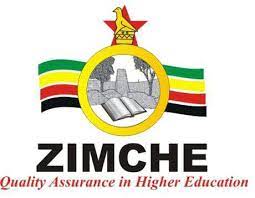Vision
To be the university of choice in open and distance e-learning.
Mission
Empowering the world through High-quality Open and Distance
e-Learning.
Shared Values
- Client-Driven
- Innovation
- Integrity
- Team-work
- Accountability
- Inclusivity

The Zimbabwe Open University (ZOU) is a State University mandated by the government of Zimbabwe through an Act of Parliament, ZOU Act (Chapter 25:20) to provide Higher Education through Open and Distance electronic Learning (ODeL).
Established in 1999, the State University operates under the Ministry of Higher and Tertiary Education, Science and Technology Development. His Excellency, President Emmerson Dambudzo Mnangagwa is the Chancellor of the University. Professor Paul Henry Gundani is the Vice Chancellor.
The University has eight faculties: The Faculty of Agriculture, the Faculty of Arts, Culture and Heritage Studies, the Faculty of Education, the Faculty of Commerce, the Faculty of Law, the Faculty of Applied Social Sciences, the Faculty of Science, and the Faculty of Technology. The institution has a Higher Degrees Directorate which caters for those students undertaking Master of Philosophy and Doctor of Philosophy degrees. All Zimbabwe Open University programs are accredited by the national regulator, the Zimbabwe Council for Higher Education (ZIMCHE).
ZOU offers degrees (undergraduate and postgraduate), diplomas, certificates and short courses in the respective faculties. Student enrolment at ZOU has been growing steadily from the time of its formation. As at 2018, ZOU graduated more than 30 000 students who have been churned out into all sectors of the economy.
On registration, one gets comprehensive and easy to follow study material. Zimbabwe Open University offers an e-learning facility through “My Vista” that enables students to apply, register and carry out studies through the Internet from any part of the world. The beauty of Open and Distance Learning (ODL) is that the University has access to a huge number of dedicated and professional tutors and staff from other universities in Zimbabwe and the world over.
The Zimbabwe Open University operates on a regional scale. It has established Campuses in all the ten provinces of the country. Each regional campus serves as the hub for all the learning activities for students in that province: from registration to face-to-face tutoring and counselling, and from assignment administration to a venue for invigilated examinations.
ZOU has a Virtual Regional Campus that caters for regional and international students.
The Zimbabwe Open University has stringent and competitive systems of ensuring high standards of learning and qualifications that are relevant to the socio-economic needs of society.
Open and Distance e-Learning (ODeL) has taken the world by storm and becomes the mode of education delivery of the moment in Zimbabwe and beyond. ODeL is aimed at bridging the time, geographical, economic, social, and educational and communication distance between student and institution, student and academics, student and courseware and student and peers. It focuses on removing barriers to access learning, flexibility of learning provision and student centeredness.
The term distance refers to only half of the Open and Distance e-Learning equation. Open and Distance e-Learning encompasses not only teaching but learning; and highlights the teacher’s role rather than the system.
ODeL is Learner-centered education in the sense that integrity and freedom of the individual is primary. Therefore, the teaching and learning process provides flexible sequences of study, negotiated objectives, content, learning methods, negotiated methods of assessment; and a choice of support mechanisms.
The educational philosophy of Open Learning looks at giving learners choices about;
- medium or media, whether print, on-line, television or video, place of study
- whether at home, in the workplace or on campus,
- pace of study, whether closely paced or unstructured,
- support mechanisms, whether tutors on demand, audio conferences or computer-assisted learning;
- entry and exit points.
The term flexible learning accentuates the creation of environments for learning that have the following characteristics: convergence of Open and Distance e-Learning methods, media and classroom strategies; learner-centered philosophy; recognition of diversity in learning styles and learners’ needs; recognition of the importance of equity in curriculum and pedagogy; use of a variety of learning resources and media; and fostering of lifelong learning habits and skills in learners and staff.
The term, distributed learning, explores the learning itself rather than the type of technology used or the separation between teacher and learner; makes learning possible beyond classrooms; and when combined with classroom modes, becomes flexible learning.
The Characteristics of ODL are as follows;
- Separation of human teacher and learner in time or place, or in both time and place;
- The module becomes the ‘teacher’ who ‘interacts’ with the learner;
- Institutional accreditation; that is, learning is accredited or certified by some institution or agency. This type of learning is distinct from learning through your own effort without the official recognition of a learning institution;
- Use of mixed-media courseware,including print, radio and television broadcasts, video and audio cassettes, computer-based learning and telecommunications. Courseware tends to be pre-tested and validated before use;
- Two-way communication allows learners and tutors to interact as distinguished from the passive receipt of broadcast signals. Communication can be synchronous or asynchronous;
- Possibility of face-to-face meetings for tutorials, learner–learner interaction, library study and laboratory or practice sessions; and
- Use of industrialized processes; that is, in large-scale Open and Distance e-Learning operations, labour is divided and tasks are assigned to various staff who work together in course development teams.
The Zimbabwe Open University (ZOU) is a unique institution of higher learning offering Open and Distance e-Learning (ODeL) education and it is the only ODeL University in the country. It started off in 1993 as the Centre for Distance Education under the University of Zimbabwe and has since grown into a fully fledged university.
In order to sufficiently cater for students throughout Zimbabwe and globally, ZOU adopted a highly decentralised structure of opening Regional Centres in all the ten (10) administrative provinces of Zimbabwe as well as a Virtual Region Centre for all international students.
At its inception, the University had four faculties namely, Faculty of Arts and Education, Faculty of Applied Social Sciences, Faculty of Commerce and Law and Faculty of Science and Technology. It is in the process of finalizing the establishment of the two faculties, namely Faculty of Information Technology and Multi- Media Studies and Faculty of Agriculture in order to address the gaps established through innovative research.
ZOU’s open and distance learning model offers a number of advantages to both learners and to providers of opportunities for learning. Problems such as distance and time, which are barriers to conventional learning, are overcome in open and distance learning.
ODeL overcomes problems of physical distance for learners in remote locations who are unable or unwilling to physically attend a campus; and learners and teachers geographically separated in that teachers in urban settings instruct learners in rural settings.
ZOU solves time or scheduling for student groups unwilling or unable to assemble together frequently, learners engaged in full-time or part-time work, both waged and volunteer; and family and community commitments.
Open and distance e-learning through ZOU can expand the limited number of places available for campus-based institutions and overcome stringent entrance requirements.
ODeL can accommodate low enrolments over a long period of time and low enrolments in one geographic region but additional enrolments elsewhere since it is located in all provinces of Zimbabwe and globally through its virtual region.
Open and distance e-learning can make the best use of the few teachers available when there is a lack of trained teaching personnel relative to demand or when teachers are geographically concentrated and teachers with certain expertise are in short supply.
Open and distance e-learning can deal with differences in societal setups, and consequently widens women’s opportunities to learn, meets the needs of populations affected by violence, war or displacement; and makes learning possible even when group assemblies are prohibited.
Functions of the Ministry:
- The Ministry is responsible for quality assurance of Higher Education and to determine the policies and direction of the higher educational system in Zimbabwe.
- Formulate an effective Science and Technology policy and implement within different institutions and to guide efforts aimed at encouraging girls to improve their technological capabilities.
- Establishing a strong scientific and technological base through strengthening of the teaching and learning of Mathematics and Science.
For more information about the Ministry visit them at:
New Complex Building, 6th Floor, F Block
Cnr 3rd Street / Samora Machel Avenue
Bag CY 7732, Causeway
Harare, Zimbabwe
Telephone: +263-4-736862 Fax: +263-4-706516
Website: www.mhtestd.gov.zw




